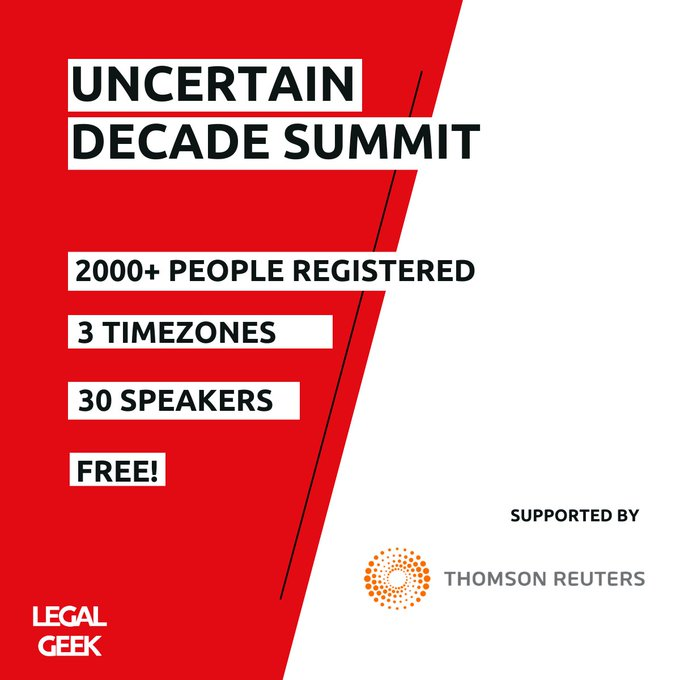Insights from Legal Geek’s Uncertain Decade Summit: Financial and Practice Management APIs

Among the hot topics at Legal Geek’s Uncertain Decade Summit – 24 hours of workshops, networking and thought leadership spread across the London, New York and Sydney time zones – are how law firms are integrating APIs into their practice. Gerry Lattimer, senior product manager, Thomson Reuters, will present the session Connecting Financial and Practice Management Data via APIs, which explores how APIs are used to connect a firm’s financial and practice data from intake to matter creation to expenses to accounts payable/receivable.
Legal Current had an opportunity to talk with Lattimer about how financial and practice management APIs help firms connect the entire matter lifecycle. Below is a recap of the conversation.
Legal Current: Let’s start with the basics. What are APIs, and what are the most common use cases in the legal space?
Lattimer: APIs are standards-based intermediaries that facilitate communication between applications. A common analogy is drawn between an API and a waiter in a restaurant. The waiter takes your request based on a formatted standard we refer to as a menu, brings the message to the kitchen and returns the kitchen’s response to your request in the form of a meal. In the legal space, we have many applications that need to communicate with each other in a standard way. A great example is a cost-recovery system that needs a list of matters so charges can be allocated accurately. An API allows the cost recovery system to request those matters on a regular basis from the matter system of record and keeps the applications in sync. Time, cost, client, matter and timekeeper are the building blocks for a huge number of integrations and the most common API use cases we currently see in the legal space.
LC: How did Thomson Reuters identify financial and practice management APIs as a customer need?
Lattimer: When speaking with customers, we kept hearing the same challenges come up again and again. The fragility and maintenance costs of the existing integration solutions were burdens that were preventing customers from moving forward with new projects. All of their time was spent keeping the current integrations alive, and they were missing out on opportunities to move the business forward.
LC: How do firms benefit from connecting financial and practice management data via APIs?
Lattimer: APIs allow firms to take advantage of stable request-response patterns to build low-maintenance integrations that replace current options and move forward by leveraging the value of connecting the data in cloud and on-premises applications. One of the big advantages of API-based integrations is that security is built into the model, so communicating between applications in different hosting solutions no longer requires complex solutions to surface the information to users.
LC: Looking ahead, what’s the outlook for API innovation?
Lattimer: The future is going to be really interesting because standards-based API integration allows innovation on scales like we haven’t seen before. It removes the current barriers to developing productivity applications by enabling no-code, low-code solutions built in frameworks like Microsoft’s Power Platform. The development cycles can be focused on the needs of the business rather than the current complex integration patterns of each individual vendor. As standards proliferate either by default or as the result of efforts like those driven by Standards Advancement for the Legal Industry (SALI), we’ll start to see real AI and machine learning being applied to data drawn from many applications.
Thomson Reuters is honored to sponsor Legal Geek’s Uncertain Decade Summit.